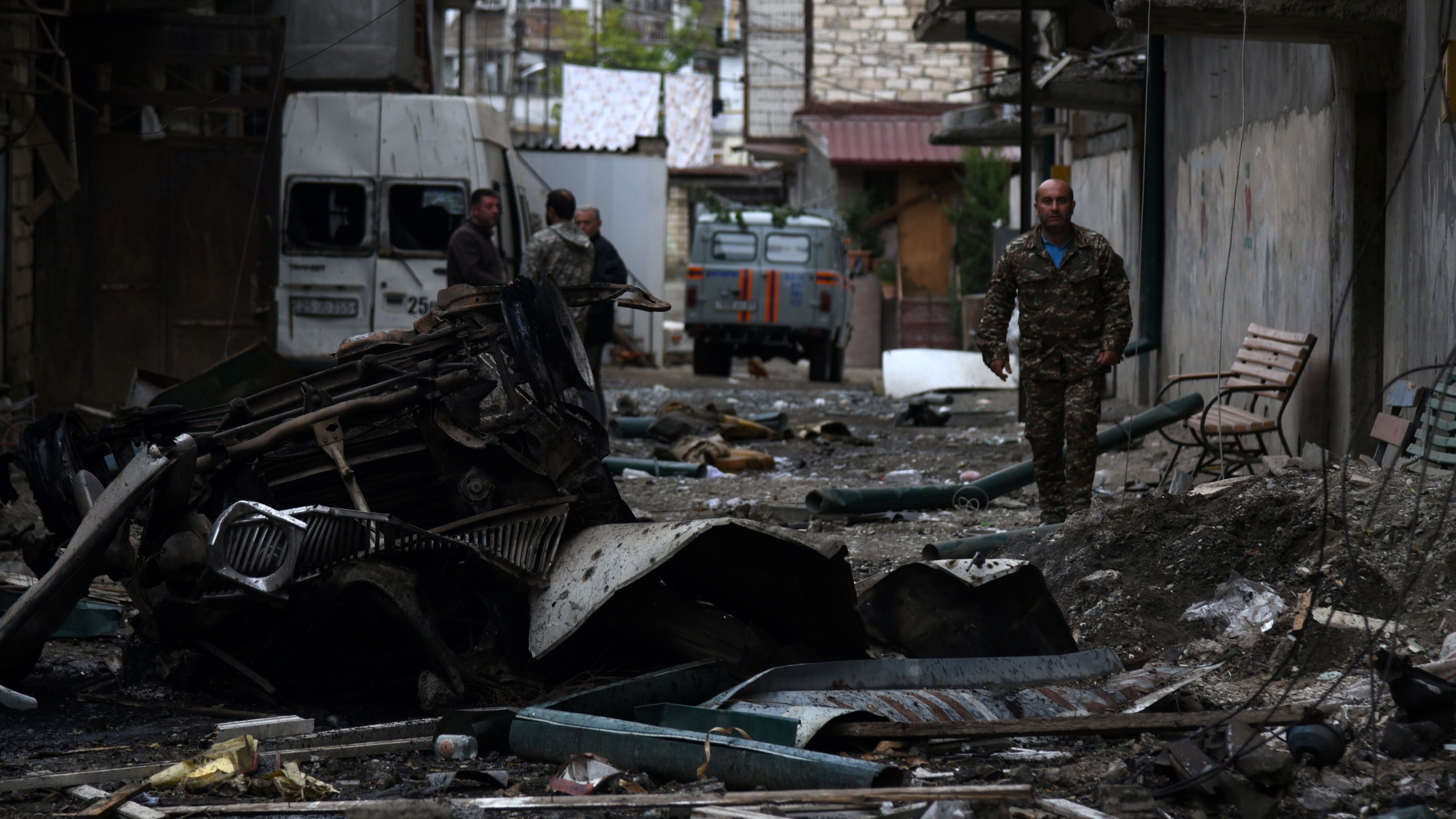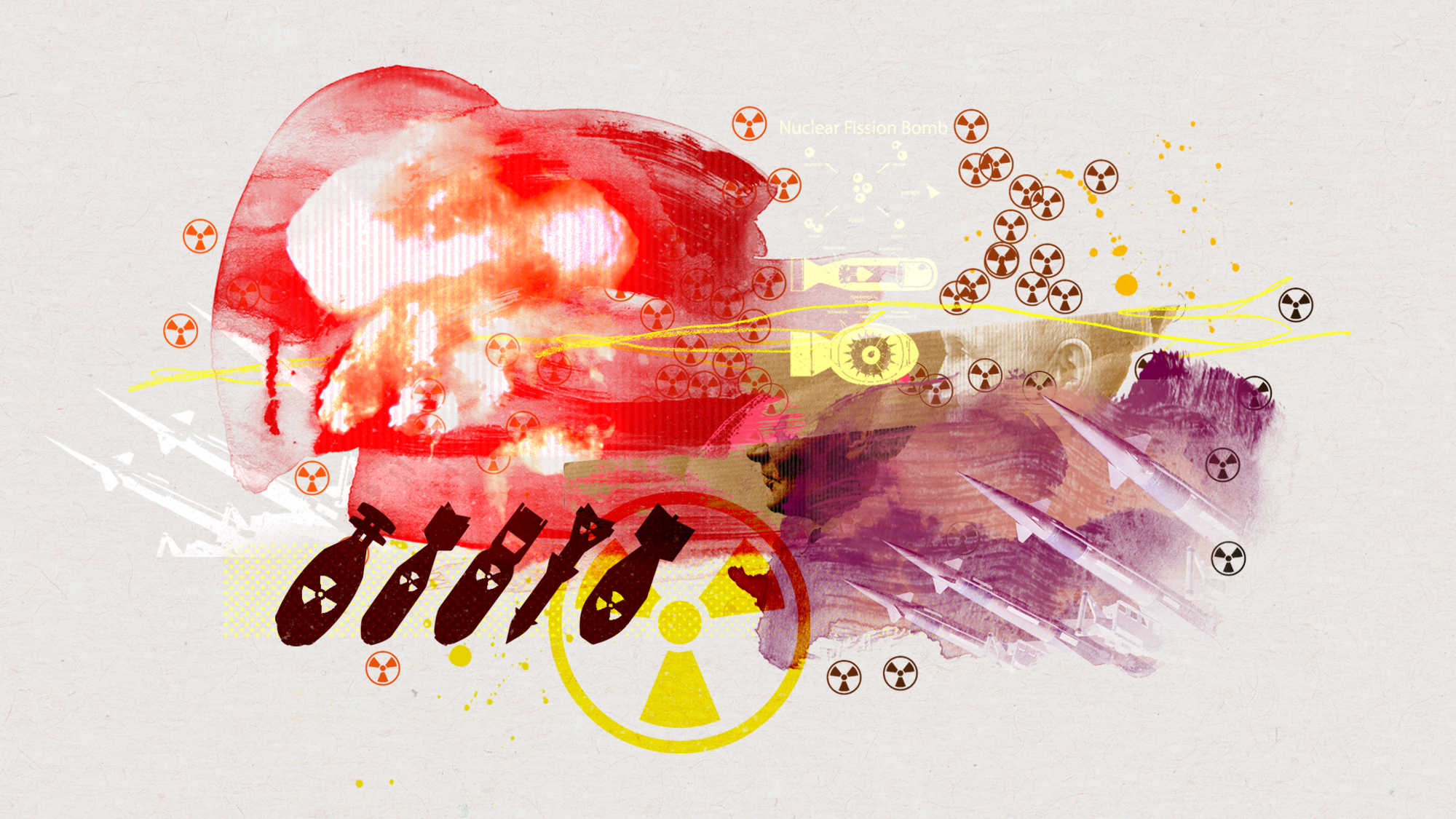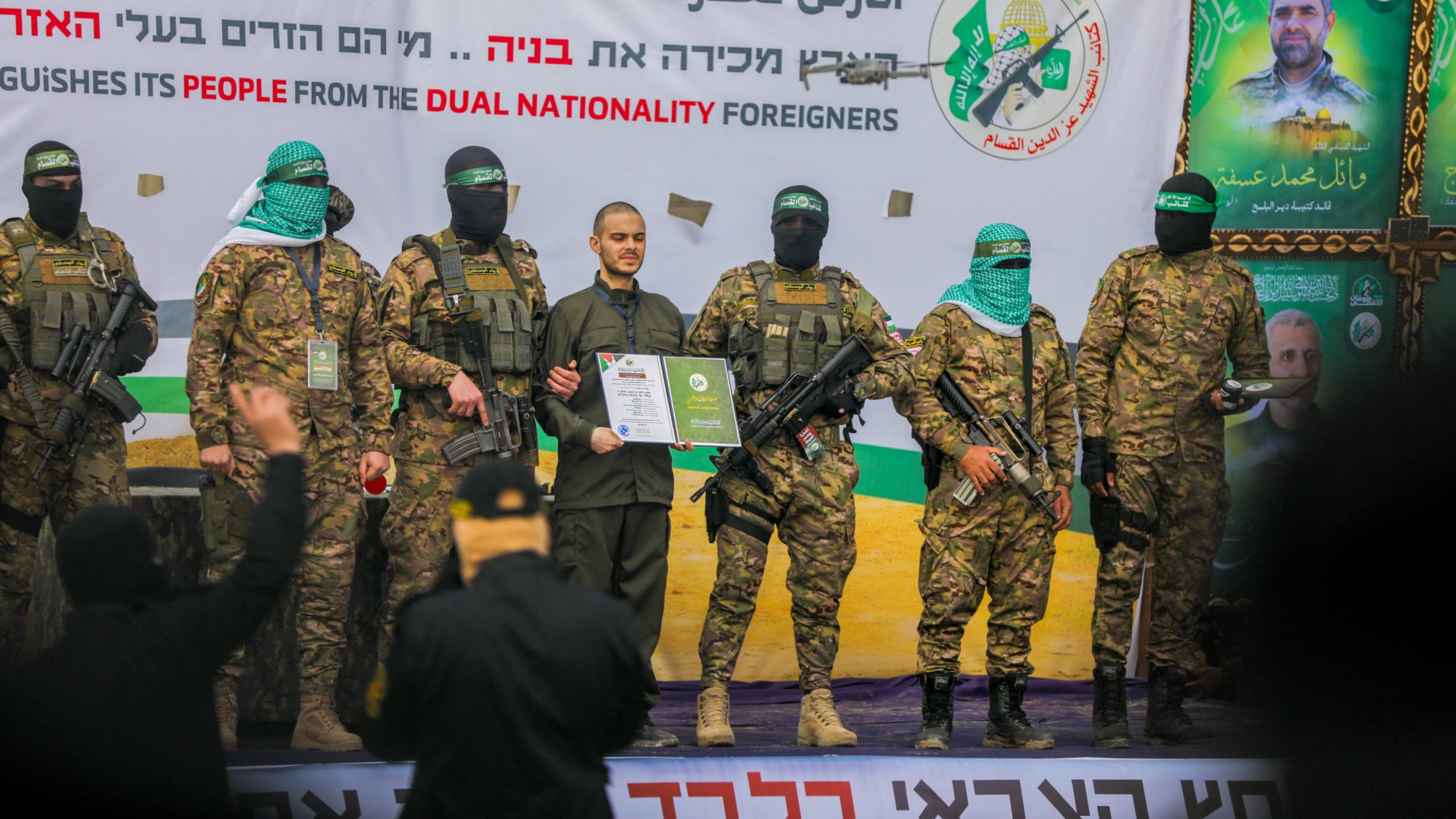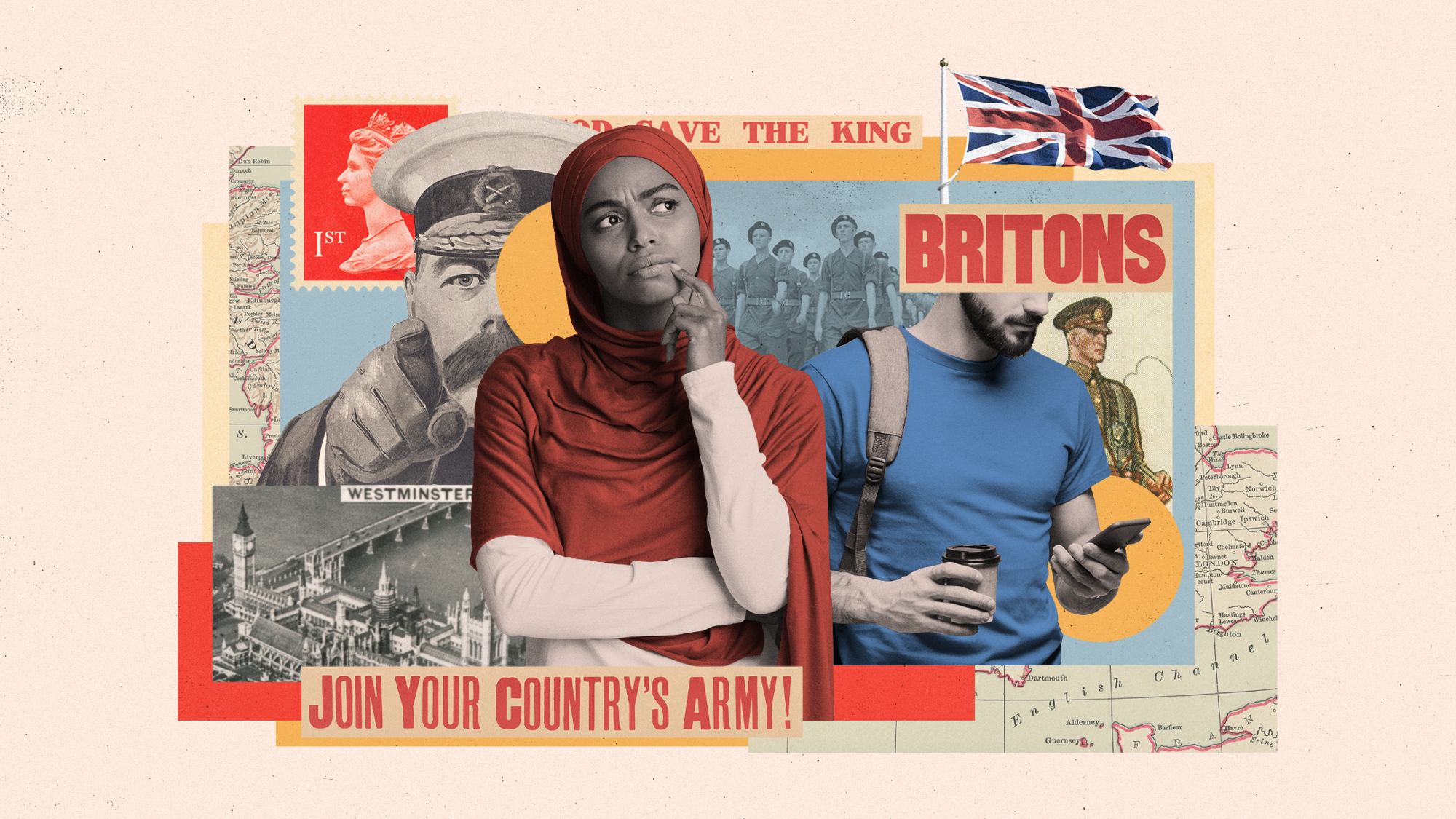Nagorno-Karabakh: disputed territory ‘laced with mines’ one year on from ceasefire
‘War wounds’ still open as Armenia and Azerbaijan mark first anniversary of deadly conflict

A free daily email with the biggest news stories of the day – and the best features from TheWeek.com
You are now subscribed
Your newsletter sign-up was successful
Landmines and unexploded ordnance left behind after intense fighting between Armenia and Azerbaijan last year could take over 10 years to be cleared.
As the two nations mark the first anniversary of the conflict over the disputed region of Nagorno-Karabakh, de-mining agencies have warned that “a lack of resources and insufficient information are complicating the clean-up operation” despite “thousands of munitions” having been removed already, Al Jazeera said.
“Several people have been killed and injured” since the ceasefire last year, the broadcaster added, while events to commemorate the war have served to highlight “the continued tensions over the breakaway region”, Radio Free Europe (RFE) said.
The Week
Escape your echo chamber. Get the facts behind the news, plus analysis from multiple perspectives.

Sign up for The Week's Free Newsletters
From our morning news briefing to a weekly Good News Newsletter, get the best of The Week delivered directly to your inbox.
From our morning news briefing to a weekly Good News Newsletter, get the best of The Week delivered directly to your inbox.
Open wound
In Azerbaijan, “tens of thousands of people rallied” in Baku, the nation’s capital, to “celebrate the country’s victory in the confrontation with Armenian forces that caused the deaths of some 6,000 people on both sides”, reported RFE.
Despite the war being ended 12 months ago by a Russia-brokered ceasefire agreement, it still remains “unclear how many more prisoners remain in captivity on either side”, the broadcaster added.
“All of Azerbaijan celebrates this glorious holiday,” President Ilham Aliyev told troops assembled to mark the celebration of the nation’s first Victory Day event.
A free daily email with the biggest news stories of the day – and the best features from TheWeek.com
“Azerbaijan has restored its territorial integrity and restored historical justice”, he added. “We have shown the whole world that we are a great nation.”
In Armenia, which was forced to accept the deal “that handed a significant part of Nagorno-Karabakh and surrounding regions it had occupied for nearly three decades back to Azerbaijan”, reactions to the anniversary were far from celebratory, RFE said.
Thousands gathered in Yerevan, the capital, calling for the resignation of Prime Minister Nikol Pashinian and “demanding that the government make no additional concessions” in “Russian-mediated diplomacy to fulfil the terms of the peace agreement”.
In the eyes of Azerbaijanis, the conflict lasting just over one month was a war fought to “liberate” the country’s “lands from occupation”, the Daily Sabah said.
The Turkish pro-government paper – Istanbul provided weapons to Azerbaijan during the war – added that the fighting was seen as a necessary step to “to prosecute Armenia” over “aggressive policies, violations of international law and war crimes”.
In September, the Azerbaijani government filed a case at the UN’s top court, claiming that Armenia engaged in “ethnic cleansing and cultural erasure” while in control of the region and in the ensuing conflict.
But “in the eyes of the Armenian people, the conflict is still unresolved, with last year’s war catching the country off guard”, Nikkei Asia reported.
“Human rights groups have condemned the use of banned weapons during the war”, the site continued, while both countries have accused the other of “breaking the ceasefire”.
Armenians continue to accuse Azerbaijani troops of “unprovoked and sporadic small-arms fire” near border towns, it added. And “there are uncertainties over the status of their soldiers who are prisoners of war or missing in action”.
While the ceasefire has brought to an end the formal fighting in the disputed region, tensions “have remained high”, RFE said.
Days ago, as both countries prepared to mark the anniversary of the ceasefire, one ethnic Armenian was killed and three injured after they “came under fire while repairing water pipes just outside the Azerbaijani-controlled town of Susa”, the broadcaster added.
War scars
The Halo Trust, a non-governmental organisation that helps countries recover after conflict, has warned that “the biggest challenge” when it comes to rebuilding Armenian-held territory “is cluster munitions, which scatter submunitions or bomblets over a wide area”, Al Jazeera said.
The group has so far “found and destroyed almost 2,000 cluster munitions since the end of the war”, however, “found that 68% of inhabited settlements either had cluster munitions or evidence of their use”.
“Cluster munitions have a high failure rate and can cause injuries and fatalities long after war has finished,” Miles Hawthorn, Halo Trust’s programme manager in Nagorno-Karabakh, told the broadcaster.
“The most common type found in Nagorno-Karabakh has a distinctive pink ribbon, which makes them cruelly attractive to children.”
The mistrust between the two warring factions is borne out in research by Human Rights Watch, which found that “at least 71 schools on the Armenian side” and “54 Azerbaijani schools were damaged or destroyed” during the fighting.
In a report entitled Lessons of War, the rights group said that following the ceasefire “civilians who had fled for safety began to return to the areas of Nagorno-Karabakh that remain under Armenian control”.
But “Armenian civilians who used to live in territory that is now controlled by Azerbaijan remain displaced in Armenia or have moved to these Armenian-controlled areas of Nagorno-Karabakh”.
At least 2,000 Russian peacekeepers are still on deployment in the region, an outcome that has left the area at “the tender mercies of a predatory power”, according to Ian Kelly, the former US ambassador to neighbouring Georgia.
Writing in The Atlantic, Kelly, who co-chaired negotiations leading to the ceasefire, warned that the conflict aided Russia’s “abiding desire to reassert its hegemony over what it sees as its historic lands, and to minimise Western involvement in the region”.
“When war broke out in 2020, Putin alone was willing to throw his weight behind getting the fighting to stop,” he added. Russia is now “in the driver’s seat and “the West must step up its diplomatic game before the region slips further beneath the waves of Russia’s illiberal hegemony”.
Like the effort to clear mines from the region, the defusing of hostilities between the two nations will be, at best, a “years-long” effort, Al Jazeera said.
In the meantime, the “war wounds” opened by the six-week conflict will remain open, Nikkei Asia added.
-
 The environmental cost of GLP-1s
The environmental cost of GLP-1sThe explainer Producing the drugs is a dirty process
-
 Nuuk becomes ground zero for Greenland’s diplomatic straits
Nuuk becomes ground zero for Greenland’s diplomatic straitsIN THE SPOTLIGHT A flurry of new consular activity in Nuuk shows how important Greenland has become to Europeans’ anxiety about American imperialism
-
 ‘This is something that happens all too often’
‘This is something that happens all too often’Instant Opinion Opinion, comment and editorials of the day
-
 Taiwan eyes Iron Dome-like defence against China
Taiwan eyes Iron Dome-like defence against ChinaUnder the Radar President announces historic increase in defence spending as Chinese aggression towards autonomous island escalates
-
 The mission to demine Ukraine
The mission to demine UkraineThe Explainer An estimated quarter of the nation – an area the size of England – is contaminated with landmines and unexploded shells from the war
-
 How will the MoD's new cyber command unit work?
How will the MoD's new cyber command unit work?Today's Big Question Defence secretary outlines plans to combat 'intensifying' threat of cyberattacks from hostile states such as Russia
-
 What are the different types of nuclear weapons?
What are the different types of nuclear weapons?The Explainer Speculation mounts that post-war taboo on nuclear weapons could soon be shattered by use of 'battlefield' missiles
-
 Is the 'coalition of the willing' going to work?
Is the 'coalition of the willing' going to work?Today's Big Question PM's proposal for UK/French-led peacekeeping force in Ukraine provokes 'hostility' in Moscow and 'derision' in Washington
-
 Is Gaza ceasefire deal about to fizzle out?
Is Gaza ceasefire deal about to fizzle out?Today's Big Question Israel and Hamas accuse each other of deliberately breaking first phase of the fragile truce, which is set to expire on Saturday
-
 Would Gen Z fight for 'racist' Britain?
Would Gen Z fight for 'racist' Britain?Today's Big Question Only 11% of people aged 18-27 say they would fight for UK, survey by The Times reveals, amid low levels of pride and 'declines in confidence in institutions'
-
 Cuba's mercenaries fighting against Ukraine
Cuba's mercenaries fighting against UkraineThe Explainer Young men lured by high salaries and Russian citizenship to enlist for a year are now trapped on front lines of war indefinitely